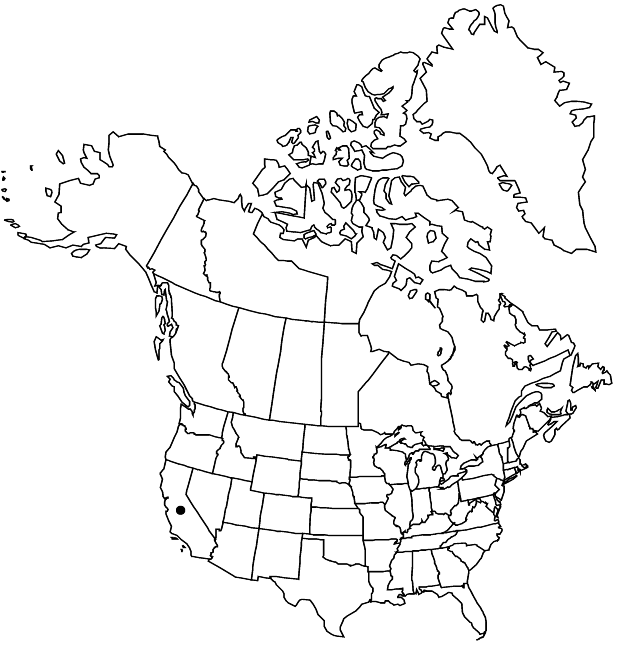Arctostaphylos silvicola
Erythea 8: 101. 1938 ,.
Shrubs, erect, 1–3 m; burl absent; twigs sparsely to densely soft-hairy. Leaves: petiole 3–8 mm; blade gray, glaucous, dull, narrowly obovate or oblong-elliptic, 1.5–3.5 × 1–1.5 cm, base cuneate, margins entire, plane, surfaces smooth, appressed gray-canescent, glabrescent. Inflorescences racemelike, simple or 1–2-branched; immature inflorescence pendent, (branches bell-shaped, framed by bracts), axis 0.5–1 cm, 1+ mm diam., sparsely to densely soft-hairy; bracts not appressed, leaflike, lanceolate, 5–12 mm, apex acute to obtuse, surfaces canescent or glabrous. Pedicels 5–7 mm, usually glabrous, sometimes sparsely hairy. Flowers: corolla white, conic to urceolate; ovary glabrous. Fruits globose, 6–12 mm diam., glabrous. Stones distinct. 2n = 26.
Phenology: Flowering winter–early spring.
Habitat: Chaparral, open conifer forests
Elevation: 100-500 m
Discussion
Of conservation concern.
Arctostaphylos silvicola is known from deep, sandy soils near the coast in chaparral and open conifer forests of the central Santa Cruz Mountains, Santa Cruz County.
Selected References
None.
